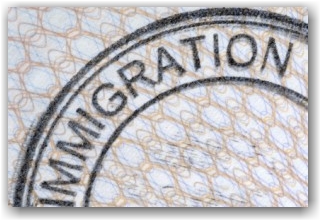Archive for the ‘H-1B Visas’ Category
Thursday, November 29th, 2012
 Much of the immigration challenges around case approval for entrepreneur start ups with USCIS has to do with the cases being reviewed by untrained officers, a lack of overall guidance for attorneys and practitioners concerning this casework, and a fundamental lack of “real world”, hands-on business knowledge on the part of USCIS. The agency has definitely released a nice looking mini-website marketing piece on the subject. We remain hopeful that the implementation of the below-listed changes will be the start of a new mindset for USCIS adjudication of entrepreneur start-up casework. In reviewing the information, we note that the Entrepreneur in Residence (EIR) team states that they have:
Much of the immigration challenges around case approval for entrepreneur start ups with USCIS has to do with the cases being reviewed by untrained officers, a lack of overall guidance for attorneys and practitioners concerning this casework, and a fundamental lack of “real world”, hands-on business knowledge on the part of USCIS. The agency has definitely released a nice looking mini-website marketing piece on the subject. We remain hopeful that the implementation of the below-listed changes will be the start of a new mindset for USCIS adjudication of entrepreneur start-up casework. In reviewing the information, we note that the Entrepreneur in Residence (EIR) team states that they have:
– Developed and deployed a training workshop for USCIS employment-based immigration officers that focuses on start up businesses and the environment for early-stage innovations;
– Trained a team of specialized immigration officers to handle entrepreneur and start up cases;
– Modified Request for Evidence templates for certain nonimmigrant visa categories to incorporate new types of relevant evidence into the adjudicative process; and
– Developed a plan for quarterly engagements with the entrepreneurial community to ensure that USCIS stays current with industry practices.
To sustain the momentum and build on the team’s accomplishments, USCIS indicated that they have extended the EIR project through April 2013. The project should be extended indefinitely if we are seriously courting foreign entrepreneurs to help jump-start the US economy. Among other things, the team states that it will expand its focus to immigrant visa pathways that may enable foreign entrepreneurs to start a business in the United States within current immigration law.
We are hopeful, in light of the economic challenges ahead of us in the USA at this time, that Congress will have a light bulb moment and pass legislation for a Start-up Visa and find a balanced and fair approach to increasing the visa alotment for STEM occupations without the punitive tradeoff approach of penalizing other visa classifications in return. For more information on the EIR program, we link here.
Tags: Congress, E-2 Visa, EB-5 Individual Visa, EB=5 Regional Center, Entrepreneurs in Residence, Foreign Entrepreneurs, Foreign Investors, H-1B Visa, Immigration Legislation, Immigration Reform, Job Creators, Start-up Visa, USCIS
Posted in Comprehensive Immigration Reform, Congress, Global Immigration, H-1B Visas, Immigration Legislation, Immigration News, L-1 Visa, USCIS | Comments Off on USCIS Develops Tools to Help Foreign Entrepreneurs Create and Grow Businesses in the USA
Thursday, May 24th, 2012
By: Timothy Sutton, Communications Editor
 Kansas Senator Jerry Moran (R-Kan.) has introduced a Senate Bill named S.3217 Startup 2.0, a bill to jump-start economic recovery through the formation and growth of new business, and for other purposes. Numerous senators support Startup 2.0, which will infuse the skilled labor market with an additional 50,000 visas for immigrants with post-baccalaureate degrees in any field listed with the Department of Homeland Security STEM Designated Degree Program (science, computers, and medicine). Applicants can be students seeking degrees or professionals practicing in any of the enumerated STEM fields.
Kansas Senator Jerry Moran (R-Kan.) has introduced a Senate Bill named S.3217 Startup 2.0, a bill to jump-start economic recovery through the formation and growth of new business, and for other purposes. Numerous senators support Startup 2.0, which will infuse the skilled labor market with an additional 50,000 visas for immigrants with post-baccalaureate degrees in any field listed with the Department of Homeland Security STEM Designated Degree Program (science, computers, and medicine). Applicants can be students seeking degrees or professionals practicing in any of the enumerated STEM fields.
Additionally, Startup 2.0 allocates 75,000 visas for qualified entrepreneurs who (1) hold a nonimmigrant visa or have or will complete a STEM listed degree, (2) register a business that employs two or more full-time non-relative employees and invests or raises at least $100,000 that (3) grows the business to an average of five employees within a three year period.
At first glance, Startup 2.0 is a positive indicator that immigration reform may be shifting toward pro-business legislation. This bill would create access to citizenship for educated foreign entrepreneurs who may lack the funding necessary to apply for an EB-5. Startup 2.0 may also free up the quota on H1-B visas, particularly the Master’s degree exception. The current H1-B quotas as of May 18, 2012 are 42,000 for the H-1B regular cap (65,000 quota) and 16,000 for the US Master’s Degree cap (20,000 quota). The cap is expected to be reached within 2-3 weeks.
To stay informed about the latest immigration news and updates subscribe to our blog and immigration and I-9 newsletters here.
Tags: H-1B Quota, H-1B Visas, Investor Visas, Jerry Moran (R. Kansas), S.3217, Skilled Labor Market, Skilled Workers, Specialty Occupations, Startup 2.0, STEM Designated Degrees, STEM Students
Posted in Department Of Homeland Security (DHS), H-1B Visas, Immigration Legislation, Immigration News, USCIS | Comments Off on Senators Support STEM Immigration Bill | Immigration Compliance Group News
Thursday, May 17th, 2012
By: Timothy Sutton, Communications Editor
The Hamilton Project, at the Brookings Institution held a forum on U.S. immigration on May 15, 2012. US Davis Economist,  Giovanni Peri, purposed a radical overhaul to the entire immigration system. In short, Peri proposed a national auction system wherein employers bid for employee visas and proceeds of these sales fund local healthcare and education. The auction prices would be set with a reserve to ensure a minimal guaranteed income stream. Uncapped, the market would dictate the number of visas issued annually. This proposal seems to find a common ground between business needs and government regulation, benefiting the low-skilled labor market.
Giovanni Peri, purposed a radical overhaul to the entire immigration system. In short, Peri proposed a national auction system wherein employers bid for employee visas and proceeds of these sales fund local healthcare and education. The auction prices would be set with a reserve to ensure a minimal guaranteed income stream. Uncapped, the market would dictate the number of visas issued annually. This proposal seems to find a common ground between business needs and government regulation, benefiting the low-skilled labor market.
Auctioning low-skilled labor visas should help reduce the population of roughly 11.5 million illegal immigrants. Employers will be able to hire a legal workforce up to the point where auction prices for visas offset low wage savings. At that time, I-9 audits and workplace raids should continue to deter further hiring of illegal immigrants. This larger, stable and legal temporary workforce will help stabilize the economy. Changes are welcomed for companies like 3M that recently experienced a “brain drain.” 3M has been outsourcing science and technology jobs to Asia, citing the instability of the low skilled labor market they rely on to support their laboratories, manufacturing, research and development.
While Peri’s proposals are likely years away from actually being introduced into legislation, public officials like Senator John Cornyn continue to push for business friendly immigration. Senator Cornyn recently introduced legislation that would add 85,000 H-1B temporary visas issued annually to foreign-born engineers, mathematicians, scientists and other high-tech workers. Cornyn reminded the Senate, “We have to remember how this country was built. All of us are sons and daughters of immigrants that showed up here and made our way. We’ve cut off that flow.”
For continued coverage of proposed immigration reform and legislation, as well as the latest developments in immigration politics, subscribe to our blog and immigration and I-9 newsletters here.
Interested in staying current with I-9/E-Verify news and issues? Check out our group on LinkedIn.
Tags: Brookings Institute, H-1B Quota, H-1B Visas, I-9 Form, I-9/E-Verify News, I-9/E-Verify News, Immigration Compliance Group, Immigration Legislation, Immigration News, Immigration Politics, Immigration Reform, Legal Workforce, Senator Cronyn, Skilled Workers
Posted in H-1B Visas, I-9/E-Verify News, ICE, Immigration Legislation, Immigration News, USCIS | Comments Off on Immigration Reform: The Future Of Immigration Policy…Visa Auctions?
Friday, April 27th, 2012
 FY 2013 cap filings are definitely exceeding the rate of the last two years. At this time last year, USCIS had received roughly 10,400 cap filings. As of April 20th, USCIS announced that it’s received 25,000 against the H-1B regular cap, and 10,900 against the master’s degree cap. The amount of cases received in this initial period for FY 2013 is almost twice the number received last year at this time.
FY 2013 cap filings are definitely exceeding the rate of the last two years. At this time last year, USCIS had received roughly 10,400 cap filings. As of April 20th, USCIS announced that it’s received 25,000 against the H-1B regular cap, and 10,900 against the master’s degree cap. The amount of cases received in this initial period for FY 2013 is almost twice the number received last year at this time.
The number of cases received towards the H-1b cap should alert employers who are still considering whether to file H-1b cap cases to take action. Employers should expect that the H-1b cap will be exhausted at a much earlier date than what occurred in the last few years.
As always, Immigration Compliance Group is happy to answer any questions about the H-1b process. If you’re planning to petition for H-1B employment in FY 2013, contact our office ASAP so that your case can be efficiently and promptly filed.
Tags: File H-1B, FY 2013 H-1B Cap, H-1 Master's Quota, H-1B Cap, H-1B Regular Quota, Immigration News, Specialty Occupations
Posted in H-1B Visas, Immigration News, USCIS | Comments Off on H-1B Cap Update | News from Immigration Compliance Group
Friday, April 13th, 2012
 USCIS has partnered with business experts to ‘supposedly’ improve the way they approach the employment-based and high-skilled visa categories used by immigrant entrepreneurs. We’d really like to hope for the best on this that something major occurs as a result of opening up to public expertise and excellence in order to relax the restrictive business immigration environment that is prevalent at this time.
USCIS has partnered with business experts to ‘supposedly’ improve the way they approach the employment-based and high-skilled visa categories used by immigrant entrepreneurs. We’d really like to hope for the best on this that something major occurs as a result of opening up to public expertise and excellence in order to relax the restrictive business immigration environment that is prevalent at this time.
Director Alejandro Mayorkas kicked-off this innovative program, called the Entrepreneurs in Residence (EIR) initiative, with an Information Summit in Silicon Valley in February. Now, USCIS has entered a new phase of the initiative by bringing together the EIR Tactical Team. For 90 days this collaborative team, comprised of both USCIS employees and entrepreneurs from the private sector, will identify opportunities where USCIS can streamline pathways for foreign entrepreneurs. Team members began their work at USCIS in late March.
Last week, they traveled to the California Service Center and met with USCIS officers to discuss the visa categories most often used by immigrant entrepreneurs: H-1B, L-1 E-1, E-2, and O-1.
We direct you to Team Member bios here.
Tags: Alejandro Mayorkas, E-1 Visa, E-2 Visa, Entertainment Visas, Entrepreneurs in Residence Program, H-1B Visa, Immigrant Entrepreneurs, Immigration Compliance Group, Immigration News, Investor Visas, IT, L-1 visa, O-1 Visa, US Business Immigration, USCIS
Posted in H-1B Visas, L-1 Visa, O-1 Visas, USCIS | Comments Off on USCIS Announces the Entrepreneurs in Residence Tactical Team | Immigration Compliance Group
Thursday, March 15th, 2012
 On March 12, 2012 USCIS revised the FAQs that reference the Jan 8, 2010 Donald Neufeld Memo that relates to the employer-employee relationship in adjudicating H-1B Petitions for 3rd Party Jobsite Placements. This topic is still very complex and greatly impacts the IT, healthcare and staffing agency industries in their ability to file for H-1B visa petitions on behalf of foreign professionals. We link above to this updated guidance, and remind you that our office is available to assist you with your H-1B case filings as it relates to these and other industries. If you have any questions pertaining to this topic or any other matter, please contact us.
On March 12, 2012 USCIS revised the FAQs that reference the Jan 8, 2010 Donald Neufeld Memo that relates to the employer-employee relationship in adjudicating H-1B Petitions for 3rd Party Jobsite Placements. This topic is still very complex and greatly impacts the IT, healthcare and staffing agency industries in their ability to file for H-1B visa petitions on behalf of foreign professionals. We link above to this updated guidance, and remind you that our office is available to assist you with your H-1B case filings as it relates to these and other industries. If you have any questions pertaining to this topic or any other matter, please contact us.
Tags: Department Of Homeland Security (DHS), Employer-Employee Relationship, Global Mobility, H-1B, H-1B for Healthcare, H-1B News, H-1Bs for IT, H-1Bs for Staffing Agencies, Immigration Compliance Group, Neufeld Memo, USCIS
Posted in Department Of Homeland Security (DHS), H-1B Visas, Staffing Agencies, USCIS | Comments Off on H-1B Visa: USCIS Revises FAQs on Employer-Employee Relationship for 3rd Party Placements
Monday, February 27th, 2012
 With H-1B filing season upon us as of April 2, 2012, we take this opportunity to remind you that although there has been slow but steady economic recovery over the last few years, the H-1B cap is expected to be reached much faster this year. This, coupled with a recent NFAP Policy Report Analysis released this month citing case denial rates of 17% with a staggering RFE (Request for Evidence) rate of 36%, sends a clear, “culture of no” message that USCIS is making it more difficult for skilled foreign nationals to work in the USA with increasing denial rates for both the H-1B and L-1 visa programs. All the more reason to be relying on experienced business immigration council for your case filings.
With H-1B filing season upon us as of April 2, 2012, we take this opportunity to remind you that although there has been slow but steady economic recovery over the last few years, the H-1B cap is expected to be reached much faster this year. This, coupled with a recent NFAP Policy Report Analysis released this month citing case denial rates of 17% with a staggering RFE (Request for Evidence) rate of 36%, sends a clear, “culture of no” message that USCIS is making it more difficult for skilled foreign nationals to work in the USA with increasing denial rates for both the H-1B and L-1 visa programs. All the more reason to be relying on experienced business immigration council for your case filings.
The NFAP report states, “Employers report the time lost due to the increase in denials and Requests for Evidence are costing them millions of dollars in project delays and contract penalties, while aiding competitors that operate exclusively outside the United States beyond the reach of USCIS adjudicators and U.S. consular officers.”
Small to medium-size companies and IT consultants and staffing agencies often bear the burden of these overbearing RFE’s. Working with smart immigration practitioners and preparing your case strategy in advance to address both your strengths and weaknesses, will pay off greatly. Here are some tips that we highly recommend be incorporated in your filings:
1) Incorporate a detailed brochure and description of the employer’s products or services and why you require a professional with a bachelor’s degree to perform the offered position. Include promotional materials, press releases or news articles to illustrate the nature of the business, new trends and growth factors in your business that substantiate the offered position.
2) Include a copy of your corporate tax return or financial statements to evidence profit and business stablity
3) Explain in detail why the position cannot be performed by an employee without a bachelor’s degree; i.e. is it standard in your industry? Provide detail (such as examples of work to be done) concerning the complexity of the position
4) Provide a real, detailed job description with the percentage of time spent on the duties of the position, the qualifications and special skills required to perform the job. Further explain any discretionary judgment that the employee will have in their job and other such areas of responsibility that are demanding or highly advanced
5) Provide evidence that you have a current and past practice of hiring bachelor’s degree employees for the subject position
6) IT and staffing agencies must be prepared to evidence the “employer-employee relationship” in H-1B offsite placement work situations by clearly evidencing the employer’s ability to “hire, pay, fire, supervise, or otherwise control the work of the employee. (based upon the January 8, 2010 Neufeld Memorandum).
If you’d like to set up a time to discuss your case with our office or to engage our services, please feel free to contact us.
Tags: DOL, F-1 Students, Global Mobility, H-1B, H-1B Job Descriptions, H-1B Visas, IT Consultants, L-1 visas, NFAP Policy Report, Specialty Workers, Staffing Agencies, USCIS
Posted in Department Of Homeland Security (DHS), Department Of Labor (DOL), H-1B Visas, L-1 Visa, Staffing Agencies, USCIS | Comments Off on Tips for H-1B Visa Petition Approvals
Thursday, February 23rd, 2012
 Top officials from the White House and the U.S. Citizenship and Immigration Services are in Silicon Valley for the week to solicit viewpoints and input from the start-up community on how the administration can improve the way it hands out visas to talented entrepreneurs who’ve landed funding to create new companies. While Obama is asking the question how he can improve the immigration process for foreign entrepreneurs, he’s stating to UniVision, “I’ve got 5 years left to solve immigration.” Our question is, must we really remain in the dark ages for 5 more years?
Top officials from the White House and the U.S. Citizenship and Immigration Services are in Silicon Valley for the week to solicit viewpoints and input from the start-up community on how the administration can improve the way it hands out visas to talented entrepreneurs who’ve landed funding to create new companies. While Obama is asking the question how he can improve the immigration process for foreign entrepreneurs, he’s stating to UniVision, “I’ve got 5 years left to solve immigration.” Our question is, must we really remain in the dark ages for 5 more years?
The article states that comprehensive immigration reform legislation continues to remain stalled in congress, as is specific bi-partisan legislation that attempts to address some of these start-up visa issues. So the Obama administration is left trying to make the most of the rules that it currently has on the books by re-interpreting a more accommodating implementation of those rules with fresh information gathered from the field. The consensus is that Obama lacks the conviction to use his executive authority in an election year on controversial immigration issues, and that this is simply PR. We say — this is exactly the time for him to use his executive authority anywhere he possibly can concerning immigration reform. We shall see if anything comes of this. More on this here.
Tags: Alejandro Mayorkas, Comprehensive Immgiration Reform, Congress, eb-5, Foreign Entrepreneurs, Global Mobility, H-1B, Immigration Reform, Investor Visas, IT Summit, L-1, SILICON VALLEY, Start-ups, USCIS, USCIS Director
Posted in Comprehensive Immigration Reform, Department Of Homeland Security (DHS), H-1B Visas, Immigration Legislation, Immigration News, L-1 Visa, USCIS | Comments Off on USCIS and White House Officials Head to Silicon Valley for IT Summit
Thursday, February 2nd, 2012
The Department of Homeland Security (DHS) this week announced a series of administrative reforms to help attract new businesses and new investment to the U.S. and ensure that the U.S. has the most skilled workforce in the world. These reforms are to take place over a period of time.
Leaders in the private sector launched the Startup America Partnership, an independent alliance of entrepreneurs, corporations, universities, foundations, and other leaders, joining together to fuel innovative, high-growth U.S. start-ups. Within just one year, the Partnership has mobilized to make over $1 billion in business services available to a national network that will serve as many as 100,000 start-ups over the next three years.
For more on this: http://www.whitehouse.gov/economy/business/startup-america
Tags: Department Of Homeland Security (DHS), E-3 visa, F-1 Visas, Global Mobility, H-1B Visa, H-4 visa, Immigration Compliance Group, Immigration News, Immigration Reform, International Students, L-1 visa, OPT, Startup America Partnership
Posted in Comprehensive Immigration Reform, H-1B Visas, Immigration News, L-1 Visa | Comments Off on DHS Reforms To Attract And Retain Highly Skilled Immigrants; Expand OPT Eligibility, H-4 dependents work authorization & more
Thursday, October 20th, 2011
This issue is currently under examination within the H-1B policy review working group as part of the comprehensive USCIS policy review. It has long been fraught with confusing and sometimes contradictory policy guidance regarding when a change in employee work location requires a new H-1B petition.
The fact is that not every change in jobsite location represents a ‘material change’ and not every change equates to a change in the conditions of employment, particularly if the change is in the same Metropolitan Statistical Area (MSA) upon which the Labor Condition Application and the prevailing wage is based.
It has long been the policy articulated in the October 23, 2003 Efren Hernandez letter (AILA Doc. No. 03112118), that changes in job site location do not require amended H-1B filings as long as a Certified Labor Condition Application is in place; an LCA posting notice under DOL regulations was completed, and other wage and hour obligations are met.
The American Immigration Lawyers Association (AILA) is requesting that USCIS “issue clear and unequivocal guidance confirming the provisions in the Hernandez letter so that petitioners and USCIS can follow and rely upon it.”
We will keep you informed concerning this matter as developments occur.
Tags: Business Visas, DOL, H-1B change in jobsite, H-1B Compliance, H-1B Visa, USCIS
Posted in Department Of Labor (DOL), H-1B Visas, USCIS | Comments Off on H-1Bs and Change in Jobsite Locations
 Much of the immigration challenges around case approval for entrepreneur start ups with USCIS has to do with the cases being reviewed by untrained officers, a lack of overall guidance for attorneys and practitioners concerning this casework, and a fundamental lack of “real world”, hands-on business knowledge on the part of USCIS. The agency has definitely released a nice looking mini-website marketing piece on the subject. We remain hopeful that the implementation of the below-listed changes will be the start of a new mindset for USCIS adjudication of entrepreneur start-up casework. In reviewing the information, we note that the Entrepreneur in Residence (EIR) team states that they have:
Much of the immigration challenges around case approval for entrepreneur start ups with USCIS has to do with the cases being reviewed by untrained officers, a lack of overall guidance for attorneys and practitioners concerning this casework, and a fundamental lack of “real world”, hands-on business knowledge on the part of USCIS. The agency has definitely released a nice looking mini-website marketing piece on the subject. We remain hopeful that the implementation of the below-listed changes will be the start of a new mindset for USCIS adjudication of entrepreneur start-up casework. In reviewing the information, we note that the Entrepreneur in Residence (EIR) team states that they have:






